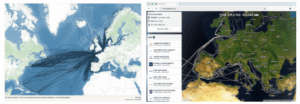New Trade Deal could boost London economy by £700m

In the early hours of yesterday morning in New Zealand, Business and Trade Secretary Kemi Badenoch formally signed the CPTPP agreement for the UK. According to the Department for Business and Trade, this deal could bring a potential boost of £700m to the London economy in the long run, and London accounted for 48% of all UK services exports.
Marco Forgione, Director General of the Institute of Export and International Trade is an expert in international trade and is able to distil the complexities of the agreement to explain how this trade deal will benefit British consumers and businesses day-to-day.
An initial reaction from Marco is available below as well as an infographic which provides a brief overview of which popular products from other CPTPP nations UK consumers will be able to purchase at reduced, tariff free prices.
“This is an incredibly exciting moment, not just for London businesses but for the wider public too. Joining the CPTPP means that the UK has free trade access to rapidly expanding new markets and economies. But what does this all ultimately mean for business and consumers?
For businesses, from small firms to large-scale organisations selling physical goods or services, the agreement represents a new gateway to 500 million customers which they can sell to with far fewer barriers. From drinks to metals, the removal of tariffs will make our finest London products more readily available to consumers in the Indo-Pacific bloc. These countries account for 13% of global GDP, and will be home to half of the world’s middle-class population in the coming years.
This agreement has the additional benefit of strengthening the value chains and supply chains within the bloc. For example, automotive parts from Mexico can now be imported tariff free into UK and cars produced here can then sold into the Malaysian market, benefitting from the terms of CPTPP.
By signing this free trade agreement, London businesses can sell more goods and services, increasing their international trade footprint and generate more opportunities for employment in the wider economy.
Also, looking at services, the UK is the second biggest services exporter in the world – behind only the US. The services sector contributes around 80% of the UK’s GDP. Being part of CPTPP has secured enhanced market access for UK service suppliers who exported £30bn worth of services to CPTPP countries in 2021 – this is set to continue to grow through this agreement.
For consumers, the goods we import from these nations – whether it’s a Japanese television, Australian wine or Peruvian coffee – will be tariff-free. The existing taxes on these products are currently paid directly by consumers. Now, we will see far more of our familiar, everyday imported products available at lower prices.
Since the UK announced its intention to join CPTPP, many other countries are now looking to join. Which means the potential market access and benefits will continue to significantly increase in the coming years. The Institute of Export & International Trade is ready to help businesses understand how they can realise the full potential of this agreement.” Marco Forgione, Director General of the Institute of Export and International Trade




